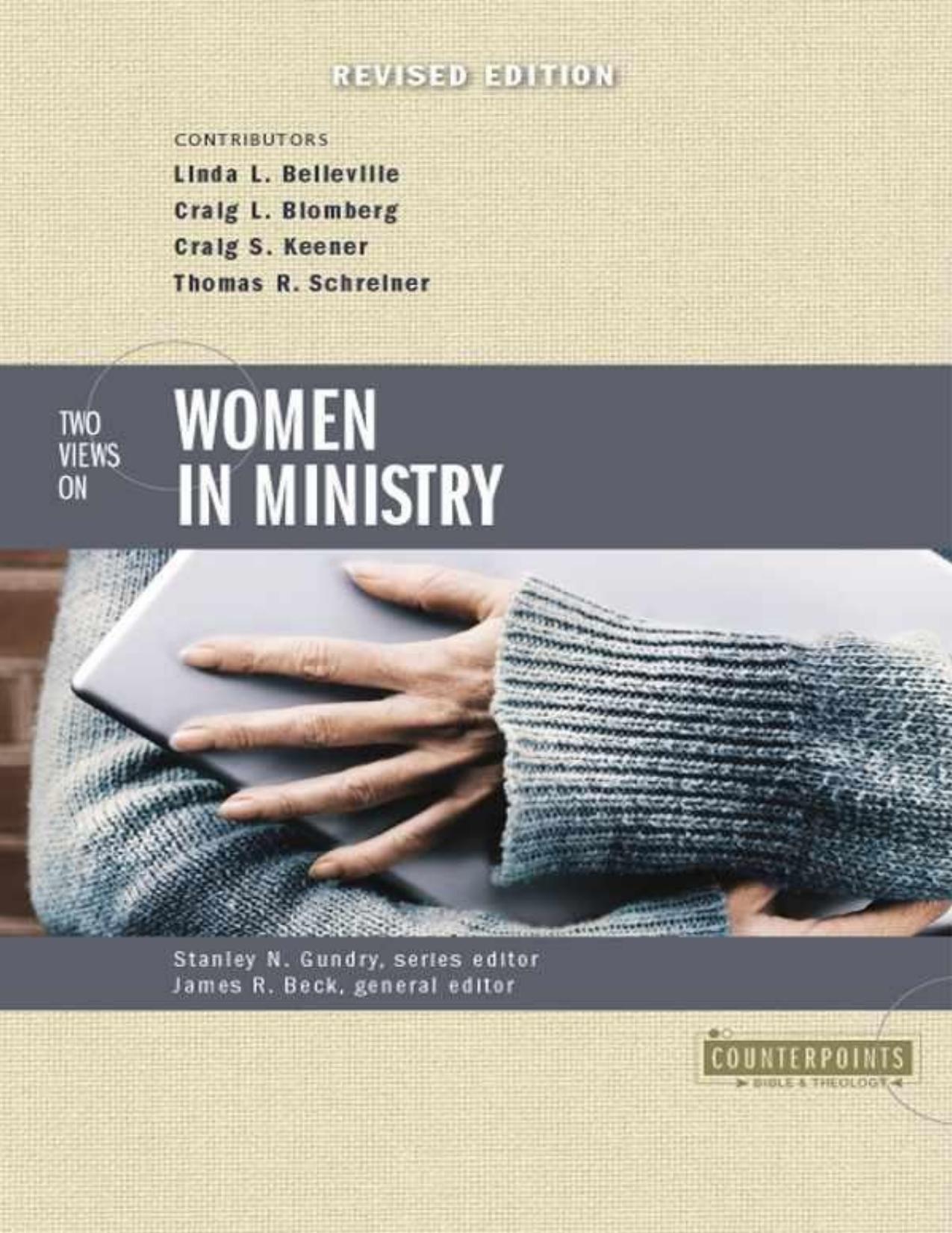Two Views on Women in Ministry (Counterpoints: Bible and Theology) by James R. Beck

Author:James R. Beck [Beck, James R.]
Language: eng
Format: epub, pdf
Tags: ebook, book
Publisher: Zondervan
Published: 2010-02-23T05:00:00+00:00
A RESPONSE TO CRAIG BLOMBERG
Craig S. Keener
I deeply appreciate the generosity and open-mindedness of this essay by my friend (and fellow Craig). I appreciate both his scholarship and his Christian integrity, and I can attest that he models the charity (both inside and outside this book) that the book is meant to convey. I also agree with many of his exegetical arguments; for the sake of honoring my word allotment in this response, however, I will focus on areas of disagreement.
Craig finds a consistent limitation of the âhighestâ position in all three sections of Scripture, providing a neat outline. Unfortunately for the argument, however, each of these sections addressed patriarchal societies, a factor we all take into account for less controversial matters (like parental arrangement of marriages). More damaging, these are hardly parallel samples. The OT argument, for example, is surprisingly weak. (He can argue in the creation narrative at best from inference, and priestsâ gender reflects ritual purity considerations hardly relevant to the case.) His parallel between apostles and pastors might prove more persuasive did they not overlap chronologically, with pastors a much less authoritative calling in the NT period. I contend below that none of his arguments are strong enough to prohibit particular ministries to women today.
Regarding the creation narrative, the creation sequence of genders hardly parallels the issue of rank by birth order (which would primarily determine the inheritance in any case, and that usually for males only). That Genesis repeatedly rejects the pervasive custom of primogeniture (Gen 25:23; 48:19; 49:4) also does not help the argument. The naming formula used for animals (2:20) has a clear literary parallel with Eveâbut only after the fall (3:20), in contrast to the differently worded phrase beforehand (2:23). After acknowledging that does not mandate subordination, Craig appeals to Paul to establish subordination anyway. Yet if the narrative is not clear enough without Paul, why not simply focus on Paul? And what does Craigâs text in 1 Corinthians 11:8â9 (which Paul balances in 11:11â12), which in context supports only head coverings, have to do with women pastors?
The priesthood was a ritual office connected with purity regulations, far less related to proclamation than prophetic ministry was. The lawâs stricter purity restrictions for women (esp. regarding menstruation) made women priests impractical (in a system which would disqualify them from service for considerable periods of time). Hopefully, most pastors today are more concerned with speaking Godâs message and leading (like prophets and judges) than with satisfying purity regulations. (We recognize that OT laws generally raise their environmentâs moral standard, but not to the fullest ideal; cf. Matt. 19:8.) Further, Deborahâs role as not only a judge but also a prophet suggests spiritual authority comparable to apostles as well as kings.
It was not inconsistent for Jesus to be countercultural in some ways (allowing women disciples) but to accommodate his culture in others (choosing males for the Twelve, whom he would send out to evangelize). Ministry in any culture requires decisions on which priorities we must fight for.
Download
Two Views on Women in Ministry (Counterpoints: Bible and Theology) by James R. Beck.pdf
This site does not store any files on its server. We only index and link to content provided by other sites. Please contact the content providers to delete copyright contents if any and email us, we'll remove relevant links or contents immediately.
What Is the Gospel? (Foreword by D. A. Carson) by Greg Gilbert(781)
Daily Strength: Devotions for Bible Believing Study by Douglas Stauffer & Andrew Ray & Rick Quatro(743)
Veritas: A Harvard Professor, a Con Man and the Gospel of Jesus's Wife by Ariel Sabar(641)
New Morning Mercies by Tripp Paul David(640)
The Practice Is the Path by Tias Little(630)
Christian Ethics by Wilkens Steve;(571)
Cleaning Up Your Mental Mess by Dr. Caroline Leaf(544)
Greatest Mystery in the World by Og Mandino(539)
2084 by John C. Lennox(434)
The Creative Call by Janice Elsheimer(433)
No More Christian Nice Guy by Paul Coughlin(430)
Our Appointment with Life by Thich Nhat Hanh(425)
This One Wild and Precious Life by Sarah Wilson(417)
The Duties of Parents by J.C. Ryle(414)
Monastic Archaeology by Unknown(407)
A Closer Talk with God: Scriptural Prayers for Women by Kim Trujillo(381)
The Tale of the Tardy Oxcart (Swindoll Leadership Library) by Swindoll Charles R(371)
Jesus and the Lost Goddess by Timothy Freke(360)
I AM THAT I AM: 365 Daily Meditations by Nadine Sabulsky(359)
